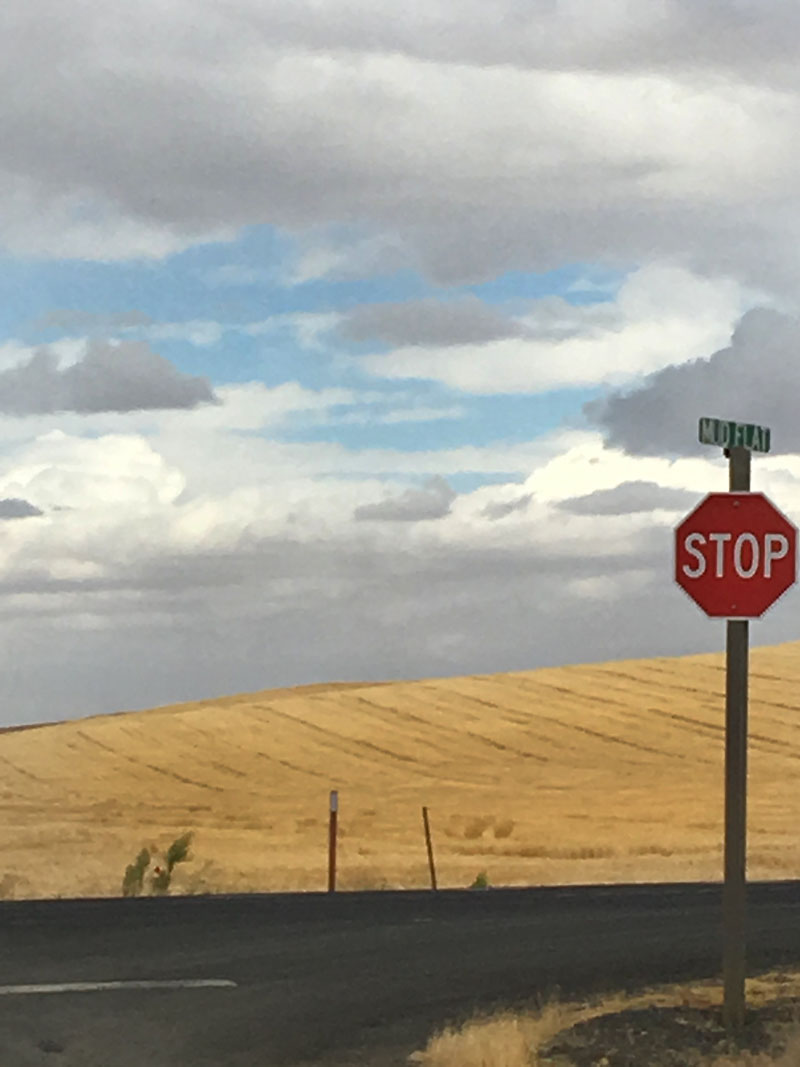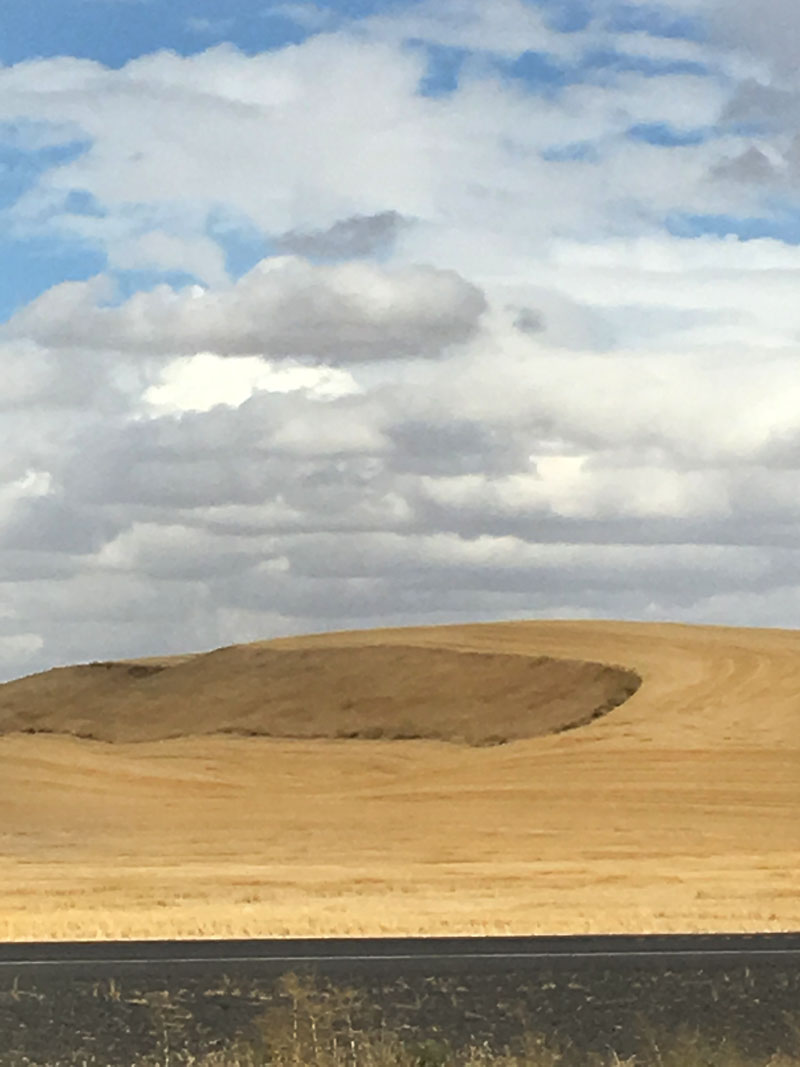I am mesmerized by the Palouse country of southeastern Washington and western Idaho. The winter wheat fields’ stretch for miles and read like the hips of reclining figures to the eye. Some of the lines are chocolate brown of the fertile soil and some are golden with the straw of the old wheat stalks. In mid summer they will be green waves. There are great rounds of hay and alfalfa with their monstrous irrigation pivot systems running on wheels defining the landscape into great circles from the air. Corporate farming has made it a lonely country now. Very few homes with the traditional cotton woods and lilac trees around the kitchen windows, those places have either fallen to a shambles of grey boards to become the home of bees or have been bulldozed to make way for pole and metal structures for servicing giant machines. The little working towns are dusty and the ones that hang on are homes to part stores and mechanics. The water towers rarely have graffiti from the local football team, for those kids ride the bus to the larger towns now, where the Banks have their headquarters and the truck dealerships share a corner with the John Deere representatives. The biggest towns are Pullman and Moscow and both are University Towns, which used to be big Ag, schools and still have programs but fewer and fewer people need apply, now they need to repair the computers and machines that determine what big farming is all about.
I won’t get into if this is a good way to go. I’m not smart enough in how to feed a planet or if we should be feeding a planet or helping a planet feed itself. I just know that I have a romantic and a philosophical kinship with the notion that people working together on farms where they live for generations impart a certain stewardship and responsibility to both the land and the larger community of their customers and the smaller community of their neighbors. But I also know that those small farmers often had hellishly hard lives and did not engender generous or literate values upon their families at times and places in the past. Read a discussion between Wendell Barry and Mary Clearman Blew to get both sides of the supposed pastoral life.
What do I know? I come from a steep-sided rain forest? This flat dry country is exotic and beautiful to me. I love driving through it. I love the brick buildings of its towns and the husky portions and the burgers they put on the plates. I’m just grateful to be here.
The reading in Seattle was fun. Lots of family came and definitely outnumbered the unsuspecting customers who wandered in out of curiosity to see me. An older couple from Alaska had a great time, and acted like an Amen chorus, saying “That’s right… that’s just right!” aloud as I read particular lines describing home, which I quite enjoyed. (I’ve always wanted to be a preacher about Alaska) Two women who I knew as quite a small child came. Ann Randlett and I were friends when I was about six years old. I spent many hours at her house next door when we lived in Woodway Park north of Seattle. She brought Chris Wright who came from a big family of girls and the Wrights were close friends of our family. At the reading I introduced her to my sister as “Chrissie Wright” and my sister Martha gasped in wonderment. Chris said, “No one has called me Chrissy for probably forty years, and her eyes teared up a bit saying that her father had passed away in the last year or so, and thinking of her old life sometimes made her cry. She turned to me. “No… I like it. I like that you called me Chrissie.”
Family has a hold on us. Always and in unexpected ways.
We broke up early and I went to my sister’s house. Their children were home for a rare visit. Their son and his long time girl friend both accomplished artists in New York and Paris, their daughter pursuing her Ph.D. in biology at Oregon State. They were all home. We had a lovely time talking about painting, ecology and poetry, my sister and her husband were happy, with that warm feeling I remember from long ago when my four siblings came home from their colleges at Christmas and my father ran the dinner table as if it were a symposium. Except this feeling was all love, loose and funny where anything could be said. My father was much more formal and often wanted to make sure he was getting his money’s worth. Or so it seems now, and I might not being fair. I know he loved having us home and certainly our mother did.
But the night after my reading I was honored to be in my sister’s house with her smart children wrapped in that feeling of familial love. Pride. Honest accomplishment. Again, I’m lucky to be driving across hundreds of miles of lonely country to give a reading where who knows who might show up or not. I’m lucky to have their love to travel with me. This is the support a writer needs to give them courage, from a actual family… or a family of choice… this intimacy, this love of long meandering conversations of different disciplines… this does more for creativity than the McCarthur Foundation. I’m sure of it.
In golden stubble
one male pheasant beats his wings
then glides… silently.
jhs







